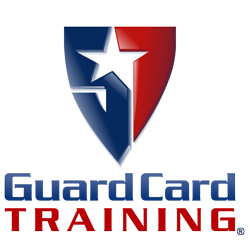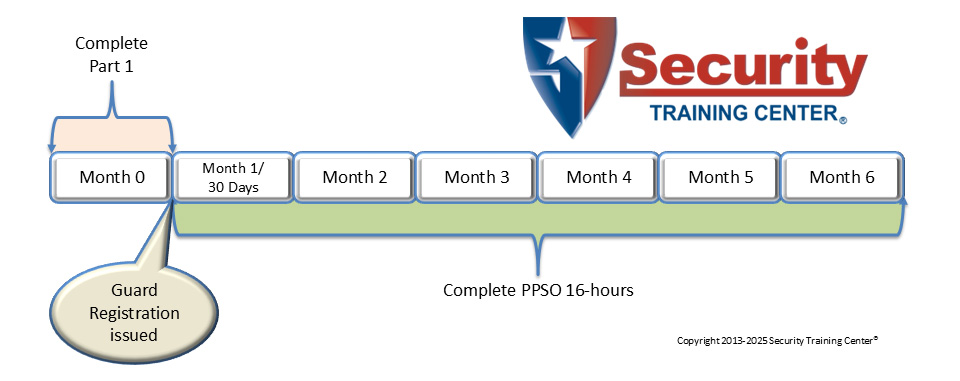
How to Become a Licensed Proprietary Private Security Officer Instructor in California (PPSO)
As a provider of approved BSIS training materials, Security Training Center® receives many calls and emails regarding the process of establishing a BSIS-licensed training facility. This page was established to address the most common questions and misconceptions about facility and training licensing.
No Unarmed Instructor License Required
There is no "license" to teach the Powers to Arrest and Appropriate Use of Force (unarmed security guard card) course. Rather, any designated employee may teach the course so long as that employee "is knowledgeable in the power to arrest as set forth in the Powers to Arrest and Appropriate Use of Force Training Manual."
This generally means that the designated employee has completed the Powers to Arrest and Appropriate Use of Force and holds a valid guard card.
Proprietary Private Security Employers
Proprietary Private Security Employers (PPSE) are only allowed to teach their direct (internal) employees. They are not permitted to teach to the general public.
In order to teach to the general public, the PPSE must also hold a Training Facility - Firearms (TFF) or Training Facility - Baton (TFB).
Proprietary Private Security Employers ARE NOT allowed to teach any weapon, which includes chemical agents.
Teaching the General Public
In order to teach to the general public, even unarmed courses, the instructor must hold a Training Facility - Firearms (TFF) or Training Facility - Baton (TFB) and the matching Training Instructor - Firearms (TIF) or Training Instructor - Baton (TIB).
Proprietary Private Security Officer Course Syllabus
The new training requirements went into effect January 1, 2024.
The Proprietary Private Security Officer required coursework is a subset of the full security guard training. The course is broken into two sections: 8-hours (Powers to Arrest), plus 16-hours (mandatory outline of courses).
First 8-hours (Part 1):
- Powers to Arrest (3-hours)
- Appropriate Use of Force (5-hours)
Following 16-hours:
- Public Relations (Community & Customer) (4 hours)
- Observation & Documentation (4 hours)
- Communication and its Significance (4 hours)
- Liability/Legal Aspects (4 hours)
California Proprietary Private Security Officer (PPSO Card) Training Timelines
A PPSO may stand post after an 8-hours course and receiving the PPSO Card from the State of California, BSIS. Afterwards, the PPSO has 180-days (6-months) to complete 16-hours of additional required training.

Continuing Education
To be completed annually (minimum of 8 hours): A registered Proprietary Private Security Officer must complete a minimum of eight (8) hours of continuing education and must include a minimum of two (2) hours of review of the appropriate use of force topics as set forth in section I.B. of the Appendix (CCR 643). Mandatory and Elective courses shall be used to meet the remaining annual training hours. Please note, your employer is required by law to provide this training.
Pursuant to Business and Professions Code (BPC) § 7574.18 and California Code of Regulations Title 16, Division 7, Section 643, the institution or company providing the training is required to provide you with a Certificate of Completion after successfully completing the training. The Bureau strongly recommends that you retain a copy of all Certificates of Completion for your records.
Source: Proprietary Private Security Officer Fact Sheet, March 2025
California Code of Regulations
BPC, CHAPTER 11.4. Proprietary Security Services (7574 - 7576), ARTICLE 3. Training
§ 7574.18.
(a) Except for a person who has completed the course of training required by Section 7583.45, a person registered and hired as a proprietary private security officer shall complete training in security officer skills within six months from the date upon which registration is issued, or within six months of their employment with a proprietary private security employer.
Title 16. § 628. Training in Exercising the Powers to Arrest.
(b) Uniformed employees of private patrol operators and responding alarm agents shall take and successfully complete the training course and examination in the exercise of powers to arrest. An employee must receive a score of 100% on said examination in order to successfully complete said course. The course of training and administration of the examination may be given by a training school approved by the Bureau or by the employer or such uniformed employees provided that such employer has a designated instructor, and such instructor is knowledgeable in the power to arrest as set forth in the Power to Arrest and Appropriate Use of Force Training Manual dated July 2023, which is exempt from the Administrative Procedure Act (California Government Code, section 11340 et seq.) pursuant to Business and Professions Code Section 7583.7, issued by the Bureau and is able to assist employees who cannot read or write.
(Emphasis added)
Course Materials
Back to topThe California BSIS provides mandatory training materials and examinations the initial 8-hours standard course in the Powers to Arrest and Appropriate Use of Force. The remaining 32-hours of full guard card must be created and submitted to the BSIS for review and approval. This process entails submitting the curricula, lesson plans, manuals, worksheets, exams and presentations to the BSIS for review and approval.
Coursework for the 20-hours School Security Officer and 16-hours Proprietary Security Guard courses must be created and submitted to the BSIS for review and approval. This process entails submitting the curricula, lesson plans, manuals, worksheets, exams and presentations to the BSIS for review and approval.
Licensing Training Materials
Trainers and facilities are not required to write their own programs. It is possible to license BSIS-approved training materials from other, approved training providers. Costs and fees vary depending upon the provider.
You may also be interested in:
Disclaimer
Back to topSecurity Training Center® is not a government department or organization. The information and links on this page and site are provided as a courtesy. Although great pains have been taken to collect the information provided here, Security Training Center® does not guarantee the accuracy, currency, or completeness of the information provided.
All questions regarding trainer licensure, applications, notices, and announcements should be directed to the Bureau of Security and Investigative Services (BSIS):
https://bsis.ca.gov/webapplications/apps/contact/index.shtml
Information provided on this site is for educational purposes. It is not legal advice.
